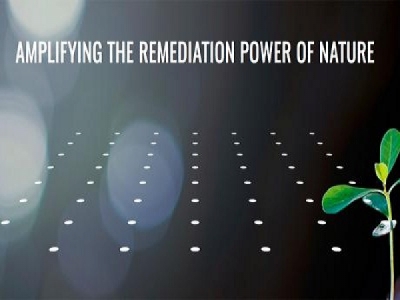
Posted on September 12, 2017
Eko Harden Technologies Oy of Helsinki has announced that its pioneering EKOGRID™ technology will be used in a one-year remediation research program of the City of Helsinki aimed at finding an ecological and economical method for cleaning up sea bed pollution in Töölö Bay.
If successful, the research program could provide the blueprint for cities around the world to clean up harmful and eye-challenging pollution in lakes and rivers at low cost and save the taxpayer up to 30 million Euros in costly dredging costs in the process.
“EKOGRID technology is already being applied in spoiled land areas in 10 countries and is successfully accelerating the decay of harmful substances in soil, and thus remediating it in an ecological way,” says Erkki Lindberg, CTO of Eko Harden Technologies. “The Töölö Bay research is to validate that it can be equally successful for remediating aquatic environments, such as sea, lake or river.”
Eko Harden is a little known Finnish company, but fast developing a reputation as the Red Adair of environmental disasters with government agencies, municipalities, land developers and energy companies alike.
EKOGRID electro kinetic oxidation technology produces a weak electric field in a polluted area to amplify the remediation power of nature. It has proven to be an ecological, sustainable and cost-efficient way for cleaning and remediating the environment already in 10 countries in 5 continents.
Now EKOGRID is being used for sea bottom remediation research in Töölö Bay to verify its potential for breaking up harmful substances in the sediment, such as oil and PAH (polycyclic aromatic hydrocarbons) compounds.
Preliminary investigations have also suggested that EKOGRID technology could have an inhibiting effect on the internal nutrient input which maintains eutrophication. The purpose of the research is to ascertain the effects that the method would have specifically on the internal circulation of phosphorus.
The benefits of the EKOGRID electro kinetic oxidation method for society and the environment are tremendous. It could save up to Euros 30 millions and avoid environmental damages by removing the need for extensive dredging in the upgrading of sea sediments. Additionally, disturbances to visitors and citizens living in the vibrant urban area of Töölö could be avoided.
The project will run for a year. Three research rafts will be anchored in Töölö Bay for the duration of the study. Conducting the research will not disturb the environment, nor will it require large structures or dredging. When the project ends, the rafts and equipment will be removed from the bay and the City of Helsinki will monitor the long-term effects of EKOGRID.
“If this experiment is successful, the method could have a great potential elsewhere as well,” adds leading researcher Kirsten Jørgensen of the Finnish Environment Institute.
The research will be carried out as a cooperative venture of two different projects with the City of Helsinki, the Finnish Environment Institute, Eko Harden Technologies Oy and Lamor Corporation Ab participating. The projects are being funded by Tekes, the EU’s H2020 programme, Eko Harden Technologies Oy, Lamor Corporation Ab and support from dock manufacturer Lip-Lap Laituri Oy. The research project is also a commitment project of the Baltic Sea Action Group (BSAG) and the Baltic Sea Challenge.
Source: permaculture





